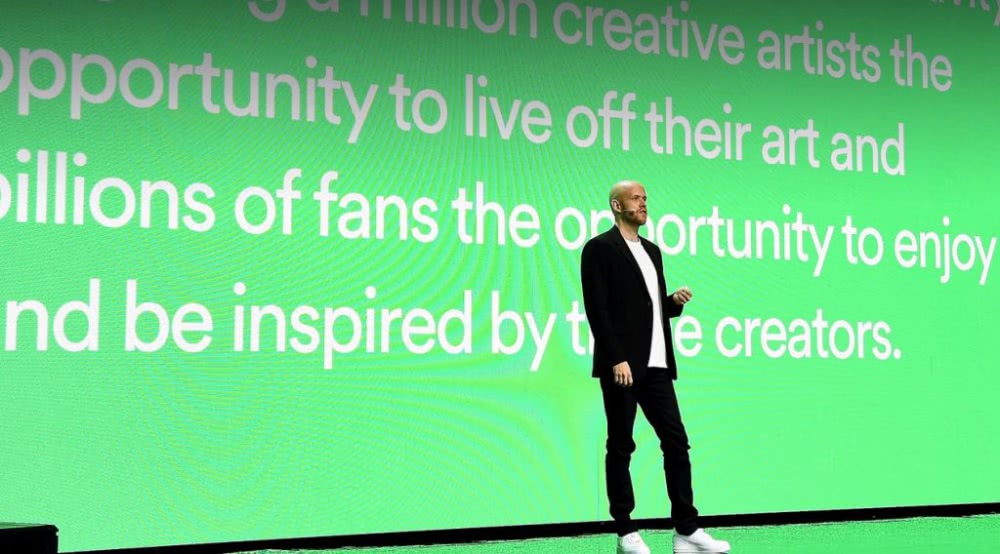Warner’s war with Spotify over India has surprisingly deep origins

Nothing in the world is worth having or worth doing unless it means effort, pain, difficulty. Former POTUS Teddy Roosevelt knew it. And it might as well be a slogan passed around Spotify’s lavish New York HQ.
After delays and an ugly, late showdown with one of its major content providers, Spotify this week launched in India. For Spotify, India represents a huge prize, though no one yet knows what that prize is.
India matters because of scale, and potential. Spotify boasts 96 million paying subscribers around the world (and at last count 207 million users, including the “freemium” tier).
And here’s a territory with upwards of 1.3 billion “potential” Spotify users, with 400 million folks already connected to the Internet, and many more coming online. And smartphones. You get the picture.
Executives want in, and they’re dreaming of an India where Bollywood tunes are pumping out of their Spotify accounts, hundreds of millions of Spotify accounts.
It hasn’t been a dreamy start.

Spotify CEO Daniel Ek
Forget that Kashmir showdown for a moment, and consider the battle between Spotify and Warner Music Group. The music major attempted, late in the game, to have Spotify’s launch grounded with the sound argument that no licensing deal had been struck for its Warner/Chappell content. Fair enough.
Then Spotify said, well, actually yes it had. Fingers were pointed. Words flew. It was mean, it was surprisingly nasty, and it’s not over yet. The Bombay High Court rather shrewdly enabled a reprieve, and a compromise.
If Spotify did go and press the button, it would have to maintain an audit of all uses of Warner’s music in India, meaning royalties would be left in escrow. Whatever happens, Warner Music will get its money. It’s always about money.
So here we are once more, two giant music industry partners waging a public battle with one another. Labels, in one corner, are skeptical. Tech companies don’t wait. How did we get to this? History has the answers.
The recording industry, which has sprinkled magic dust over so many careers, turned average blokes into walking, singing gods, and made us feel happy to throw money at our heroes, has made some epic blunders in the past.
The war over India has its origins which can be traced back to MTV and iTunes.
Back in the early 1980s, when video killed the radio star and MTV actually meant “music television,” the record companies screwed themselves over, big style. Early on, the labels fed MTV its music videos (or as marketing types like to call them, “promos”) for nothing.
The budget for those clips ballooned. Still nothing. MTV built an empire from free music videos, artists got exposure. It couldn’t go on like that forever. Ultimately, major and indie labels used their best weapon in negotiating for a better deal, any deal. Money or no music videos.
Did the labels learn from their mistakes? Well, sort of.
In the early noughts, when the Internet killed the video star, Apple and its visionary leader Steve Jobs had a plan that could save everyone. Digital downloads.
These were desperate times for an industry in a death roll, taking a constant beating from peer-to-peer networks and, presumably, kids handed out ripped CDs to their mates on the bus. The iTunes music store could take on those pirates, and flog them.
Jobs’ plan was a good one, and it worked. Sort of. The labels screwed themselves again with unfavourable licensing terms and the real headscratcher: unbundling.
Apple didn’t have a problem with cherry-picking. If your leader’s new album had one killer and nine tracks of filler, go for gold. Artists held their records back. But it was better than zip. And it was a start. Today, downloads are as daggy as that Pat Boone record in grandpa’s record collection.
Today, it’s all about streaming, all-you-can eat music apps on your mobile. Spotify won’t have India all to itself. Local platforms Gaana and JioSaavn are established, Apple Music and Amazon Prime Music got in early. But there’s a lot of room to move.
Nothing meaningful ever came easy. Spotify’s licensing team will fancy that they exemplify all that patience, toil and grit that Roosevelt spoke so highly of. Warner Music’s counterparts won’t make the mistakes of their predecessors. Get out your popcorn, and turn up the tunes. This fight isn’t over.
This article originally appeared on The Industry Observer, which is now part of The Music Network.






























